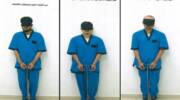Religious software engineering students recently gathered in Jerusalem for a 44-hour “hackathon,” pumping out impressive technological innovations including an improved infant oxygen monitor.
By JNS
More than 100 religious women students from Jerusalem College of Technology/Machon Tal worked around the clock last week as part of the second annual Hack@Tal, a 44-hour hackathon for the school’s Torah-observant women students.
The winning team, consisting of five software engineering and computer science students, won a 3,000 shekel prize (more than $800) for their solution to a challenge presented by Intel and Alyn Hospital designed to more comfortably monitor oxygen levels in infants’ bloodstreams.
Instead of the uncomfortable current device, which is clipped to a finger and attached with wires, the newly developed product allows for wireless monitoring attached to the infants’ toe as part of a cozy sock.
Other challenges at the event were provided by IBM, Rafael Defense Systems, ExLibris, Synamedia, Magen David Adom, Melabev, Cybersafe and Brix Software.
It was really amazing to be able to take this thing from zero—from just a challenge presented—and develop this tremendous product that can create real change and help a lot of people,” said Hadass Wittow, a third-year computer-science student at Machon Tal who was part of the winning team.
“We slept about three hours out of the 44 hours we were taking part in this hackathon, but it was really special for us,” she continued. “We had a lot of confidence throughout the competition thinking we were going to win, but it was great to hear our name called as the winners.”
The second-place prize at the competition was awarded to a team of women who used machine learning to automatically detect the images of patients and then blur them, helping to enable organizations and hospitals to better protect the privacy of their patients.
The women taking part in the hackathon came from a variety of disciplines, including software engineering, electrical engineering, industrial engineering and business.
“Last year was our first hackathon for women at Tal, and the interest in participating was absolutely through the roof, so much so that we had to close registration early,” said Orlee Guttman, director of Strategic Partnerships at JCT/Tal. She added that women from religious communities are ready to seize “opportunit[ies] and run with [them] above and beyond all expectations.”
Do You Love Israel? Make a Donation - Show Your Support!
Donate to vital charities that help protect Israeli citizens and inspire millions around the world to support Israel too!
Now more than ever, Israel needs your help to fight and win the war -- including on the battlefield of public opinion.
Antisemitism, anti-Israel bias and boycotts are out of control. Israel's enemies are inciting terror and violence against innocent Israelis and Jews around the world. Help us fight back!























